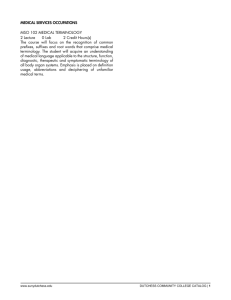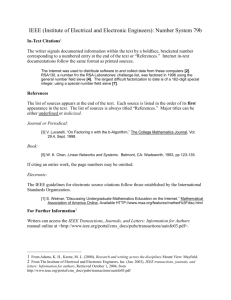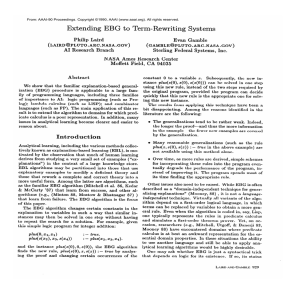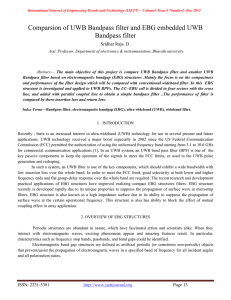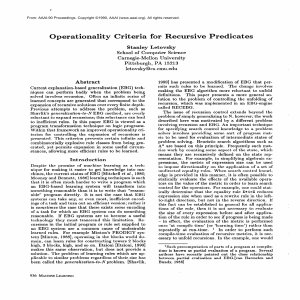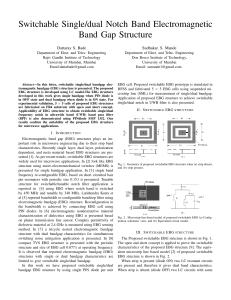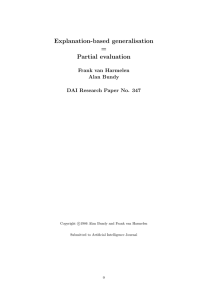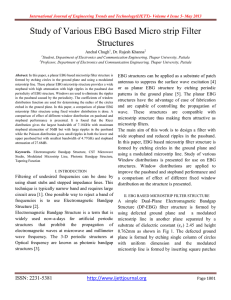The Marvels of Electromagnetic Band Gap (EBG) Structures
advertisement
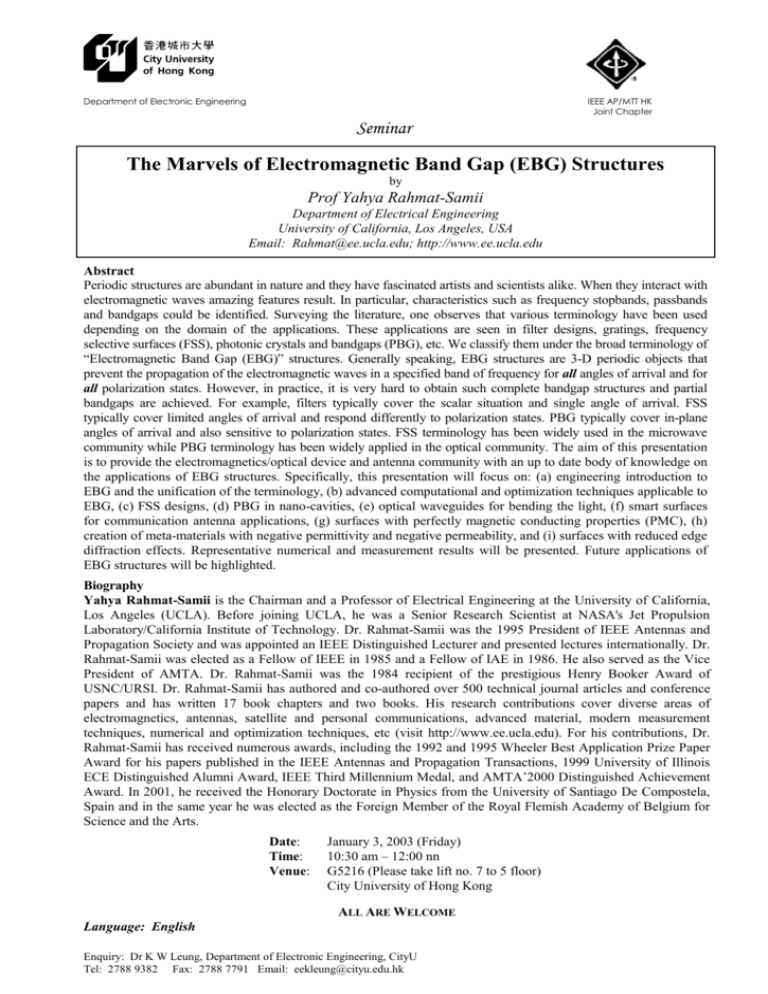
Department of Electronic Engineering IEEE AP/MTT HK Joint Chapter Seminar The Marvels of Electromagnetic Band Gap (EBG) Structures by Prof Yahya Rahmat-Samii Department of Electrical Engineering University of California, Los Angeles, USA Email: Rahmat@ee.ucla.edu; http://www.ee.ucla.edu Abstract Periodic structures are abundant in nature and they have fascinated artists and scientists alike. When they interact with electromagnetic waves amazing features result. In particular, characteristics such as frequency stopbands, passbands and bandgaps could be identified. Surveying the literature, one observes that various terminology have been used depending on the domain of the applications. These applications are seen in filter designs, gratings, frequency selective surfaces (FSS), photonic crystals and bandgaps (PBG), etc. We classify them under the broad terminology of “Electromagnetic Band Gap (EBG)” structures. Generally speaking, EBG structures are 3-D periodic objects that prevent the propagation of the electromagnetic waves in a specified band of frequency for all angles of arrival and for all polarization states. However, in practice, it is very hard to obtain such complete bandgap structures and partial bandgaps are achieved. For example, filters typically cover the scalar situation and single angle of arrival. FSS typically cover limited angles of arrival and respond differently to polarization states. PBG typically cover in-plane angles of arrival and also sensitive to polarization states. FSS terminology has been widely used in the microwave community while PBG terminology has been widely applied in the optical community. The aim of this presentation is to provide the electromagnetics/optical device and antenna community with an up to date body of knowledge on the applications of EBG structures. Specifically, this presentation will focus on: (a) engineering introduction to EBG and the unification of the terminology, (b) advanced computational and optimization techniques applicable to EBG, (c) FSS designs, (d) PBG in nano-cavities, (e) optical waveguides for bending the light, (f) smart surfaces for communication antenna applications, (g) surfaces with perfectly magnetic conducting properties (PMC), (h) creation of meta-materials with negative permittivity and negative permeability, and (i) surfaces with reduced edge diffraction effects. Representative numerical and measurement results will be presented. Future applications of EBG structures will be highlighted. Biography Yahya Rahmat-Samii is the Chairman and a Professor of Electrical Engineering at the University of California, Los Angeles (UCLA). Before joining UCLA, he was a Senior Research Scientist at NASA's Jet Propulsion Laboratory/California Institute of Technology. Dr. Rahmat-Samii was the 1995 President of IEEE Antennas and Propagation Society and was appointed an IEEE Distinguished Lecturer and presented lectures internationally. Dr. Rahmat-Samii was elected as a Fellow of IEEE in 1985 and a Fellow of IAE in 1986. He also served as the Vice President of AMTA. Dr. Rahmat-Samii was the 1984 recipient of the prestigious Henry Booker Award of USNC/URSI. Dr. Rahmat-Samii has authored and co-authored over 500 technical journal articles and conference papers and has written 17 book chapters and two books. His research contributions cover diverse areas of electromagnetics, antennas, satellite and personal communications, advanced material, modern measurement techniques, numerical and optimization techniques, etc (visit http://www.ee.ucla.edu). For his contributions, Dr. Rahmat-Samii has received numerous awards, including the 1992 and 1995 Wheeler Best Application Prize Paper Award for his papers published in the IEEE Antennas and Propagation Transactions, 1999 University of Illinois ECE Distinguished Alumni Award, IEEE Third Millennium Medal, and AMTA’2000 Distinguished Achievement Award. In 2001, he received the Honorary Doctorate in Physics from the University of Santiago De Compostela, Spain and in the same year he was elected as the Foreign Member of the Royal Flemish Academy of Belgium for Science and the Arts. Date: Time: Venue: January 3, 2003 (Friday) 10:30 am – 12:00 nn G5216 (Please take lift no. 7 to 5 floor) City University of Hong Kong ALL ARE WELCOME Language: English Enquiry: Dr K W Leung, Department of Electronic Engineering, CityU Tel: 2788 9382 Fax: 2788 7791 Email: eekleung@cityu.edu.hk


